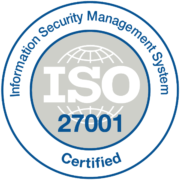Compliance considerations for using (and deploying) Microsoft365
While Microsoft 365 is an impressive platform, no SaaS provider is 100% secure. To ensure you meet your compliance requirements, you can’t rely on Microsoft 365’s security and backup features alone. This is even more critical if your teams are working remotely, which is becoming now the norm for Australian businesses.
So how do you ensure that your data stays secure? Here are five key steps you can take to deploy Microsoft 365 across your remote workforce safely and meet your compliance obligations.
1. Remember data sovereignty
Microsoft 365 provides the platform infrastructure, but it’s your responsibility to store your data in line with Australian law.
You must comply with Australian data sovereignty. In other words, you need to store Australian data within Australia’s boundaries, even if your teams work remotely.
How do you do this? By partnering with a provider like Global Storage who understands your compliance requirements and only ever stores Australian data on domestic servers.
2. Identify gaps in your backup processes
Yes, Microsoft 365 offers some backup facilities, but they’re incomplete.
Microsoft 365 only protects the hardware and the operating system, not user accounts and data. So if there’s a ransomware attack and you lose data, it’s permanently lost unless you back it up.
What does this mean for your remote workforce? Well, whether you’re talking on Teams or emailing through Outlook, you need to back up your data and store it safely.
Otherwise, important correspondence could be gone forever.
3. Retain necessary data
There’s no doubt that it’s an end user’s responsibility to back up some data, but with business-critical information, it’s your responsibility to ensure it’s recoverable. Otherwise, you’ll fall short of your compliance obligations.
And remember, Microsoft Exchange Online only stores data for a maximum of 30 days. You need your own third-party backup tools to archive this data for longer.
The good news is that partnering with a managed services provider like Global Storage means you don’t need to deploy your own backup tools. They have scalable, agile solutions you can roll out across every user device and account, no matter where they are.
4. Train your end users
When creating a remote workforce, you can’t underestimate the importance of end user training.
If an end user doesn’t know how to spot phishing scams or fake login screens, they could unwittingly leak confidential data to malicious actors. Every end user has a part to play in keeping your virtual Microsoft 365 environment secure, so be sure they’re armed with the information they need.
5. Promote a security culture
All this adds up to creating a culture of security across your organisation. Encourage end users to take security seriously and ensure they know who to contact if they have any concerns. At the very least, ensure that:
- End devices are protected with up-to-date security patches.
- Users know how to create strong passwords.
- You use multi-factor authentication, where possible.
- Users log on through secure VPNs, even if they’re on private networks.
Deploy Microsoft 365 safely with Global Storage
Australian businesses are among those most likely to be targeted by cybercriminals, which means you must take every available step to secure your data. The bottom line: Don’t make the mistake of relying solely on Microsoft 365’s built-in features — these aren’t enough to comply with Australian security requirements.
So, trust your Microsoft 365 data backup needs to Global Storage.






